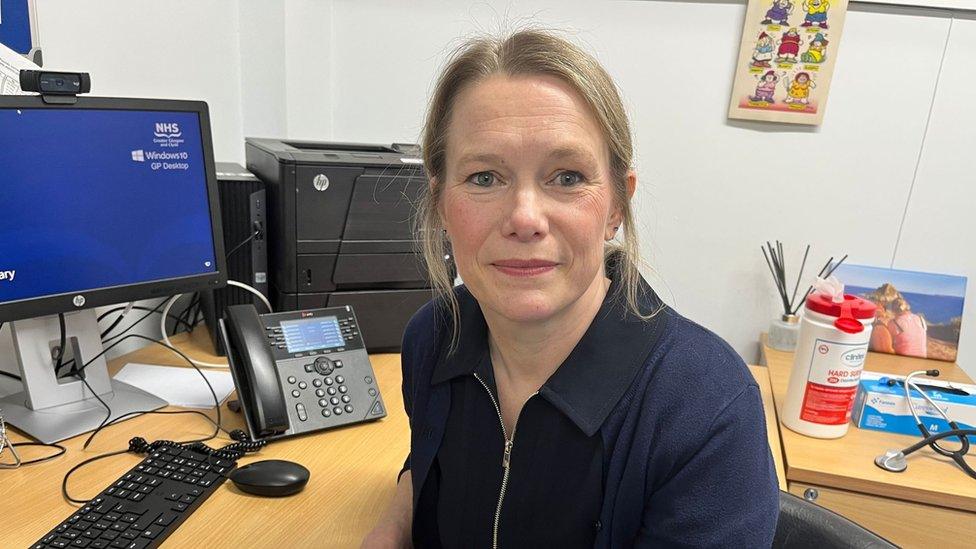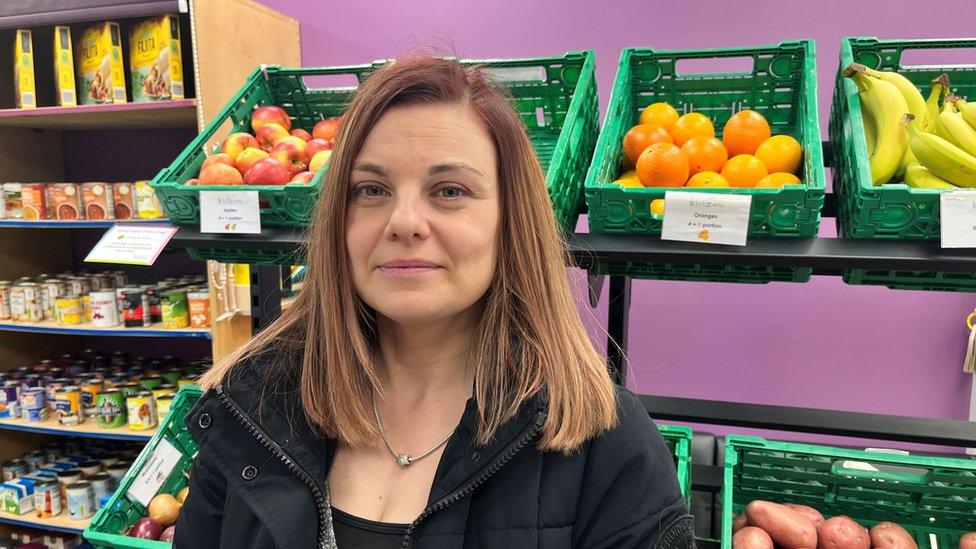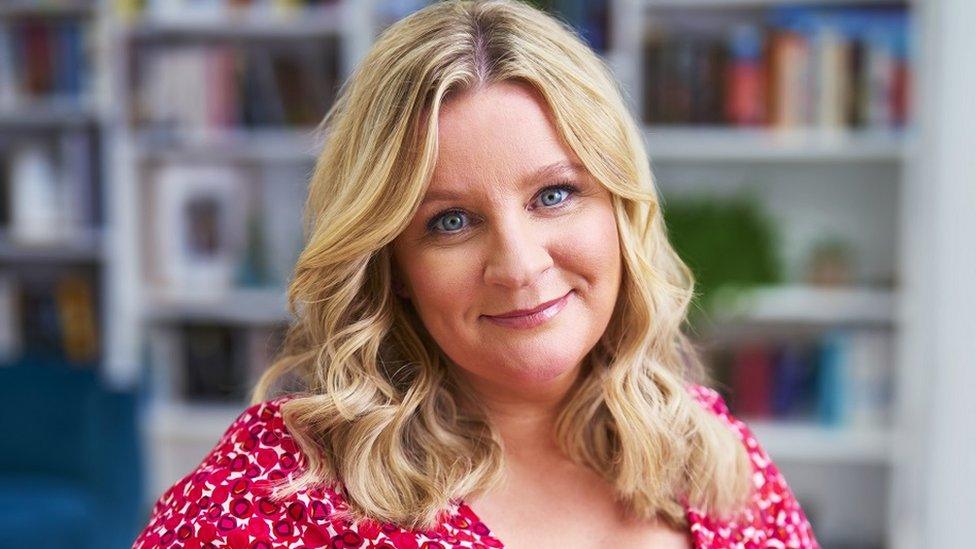Cost of living: GP concerns over rise in signs of malnutrition
- Published

Dr Jen Dooley says she often sees patients lacking in very basic vitamins and minerals
More cases of malnutrition are being seen in Scotland, according to doctors working in some of the most deprived communities.
A group called GPs at the Deep End is concerned the cost-of-living crisis is making people more reliant on cheaper, processed foods.
Dr Jen Dooley told the BBC people were choosing the wrong foods to 'fill up'.
She said she often saw patients lacking in basic vitamins and minerals.
GPs at the Deep End is a network representing doctors working in surgeries in the 100 most deprived populations in the country.
Dr Dooley, who is based in Port Glasgow in Inverclyde, said: "We're seeing a lot of cases where people come to us feeling a whole diverse range of presentation - fatigue, tiredness - and when we're investigating, we're finding signs of malnutrition."
With less money to spend on their weekly food shop, Dr Dooley said she was worried people were eating food that was very energy-dense.
"It's not very nutritious and I think what we're seeing is the impact of that," she said.
Dr Dooley said food banks did good work but she worried they were unable to provide fresh, quality food.
"They tend to be providing packaged food, tinned food, dried food and it's just not as nutritious," she said.
She praised the community pantry model which sees a range of food, including fresh fruit and veg, sold at a fraction of the usual price to people who sign up to be members.

Jenna McNabb says the community pantry helps with rising food bills
At the Kidzeco community pantry in Bathgate, mum-of-three Jenna McNabb said being able to keep her children well fed took the stress and burden off her family.
Ms McNabb said: "A weekly shop has gone from about £60 if you went to a normal supermarket up to about £100 now, so to be able to come here has cut our food bills so much."
She said knowing her two young children were well fed was hugely important to her.
The charity's managing director Tracey Murdoch said demand was vast and mostly from working families.
"We work on shopping slots, and we can only offer so many per week," she said. "We do it on a computerised system and they're booked out within an hour."
New research from Which? suggests one in 10 consumers in Scotland are skipping meals and financial pressures are leading people to make choices that could be harmful to their health.
As well as not having enough to eat, malnutrition can be a result of not eating the right things.
According to the Scottish Health Survey, two-thirds of adults in Scotland were overweight in 2021.

Prof Mike Lean is a consultant physician and professor of human nutrition at the University of Glasgow
Prof Mike Lean, from the University of Glasgow, is concerned that the stress of the current financial climate could lead to more overeating.
The nutritionist said: "Obesity in Scotland is always cited as being among the highest in Europe and it is.
"There's a lot of other people who are at risk of gaining weight if conditions change.
"Cost of living, lockdowns - these can all exacerbate behaviours which tend to result in increased calorie consumption without the physical activity you need to burn it off."
Prof Lean said he would encourage a return to simple, affordable, Scottish foods.
He said: "We should celebrate foods like porridge, and lentil soups, and local fruit, as normal meals for most days.
"Our grandparents enjoyed a traditional Scots diet, and both obesity and type 2 diabetes were uncommon."
Related topics
- Published27 January 2023

- Published8 January 2023
